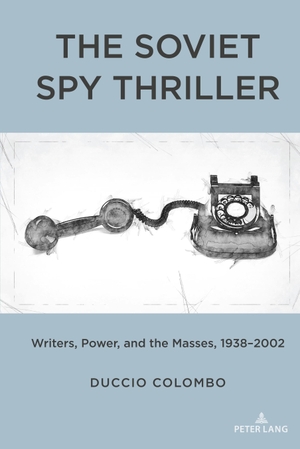Für statistische Zwecke und um bestmögliche Funktionalität zu bieten, speichert diese Website Cookies auf Ihrem Gerät. Das Speichern von Cookies kann in den Browser-Einstellungen deaktiviert werden. Wenn Sie die Website weiter nutzen, stimmen Sie der Verwendung von Cookies zu.
Cookie akzeptieren
- Peter Lang
- 2022
- Gebunden
- 308 Seiten
- ISBN 9781433191909
It is commonly held among scholars that there was no mass literature in the Soviet Union during the Stalin years. What should we do, then, with Lev Ovalov¿s Major Pronin or with the stories of Lev Sheinin, which began to appear in the mid-1930s? And what about Nikolai Shpanov¿s post-war best- sellers? As The Soviet Spy Thriller demonstrates, the Soviet authorities did not like to admit that they published low-quality literature aimed at the uncultured masses, but they greatly valued its propaganda value. These works represented a break with the ¿Red Pinkerton¿ tradition of the 1920s: the genre was being reinvented along new lines, with a
Mehr
Weniger
zzgl. Versand
in Kürze